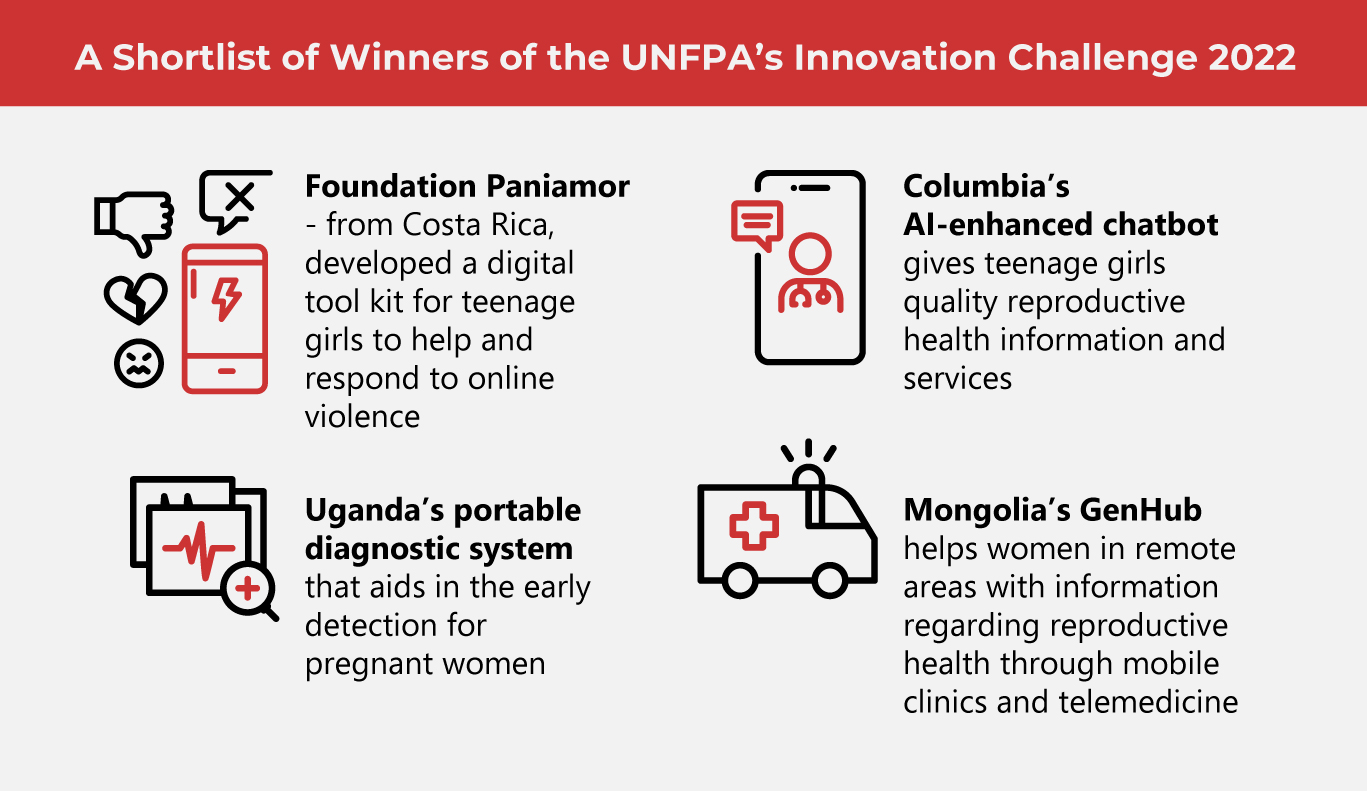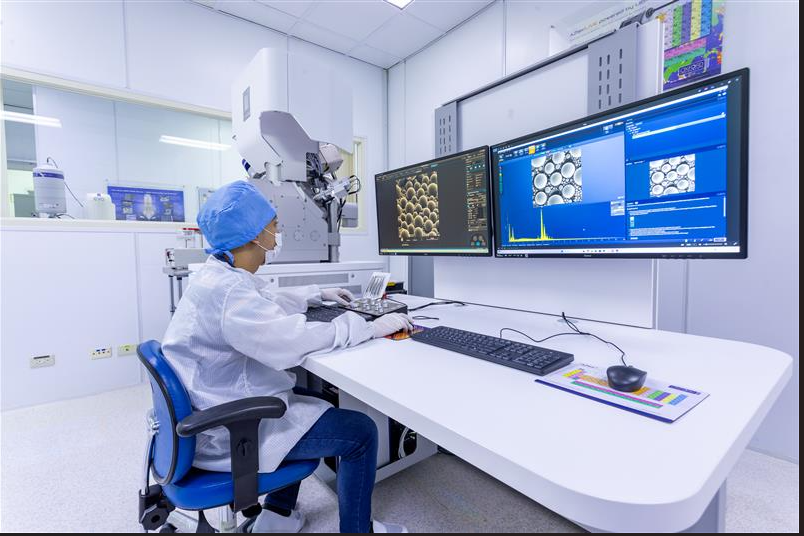Connect With Us


Strides have been made in the area of maternal care and childbirth through the years, thanks to the many scientific, medical, and technological advancements made. Today, the link between maternal care, childbirth and reproductive rights are tighter than ever, with many at-risk pregnancies reported in developing nations. How is technology stepping up to address not only risks during birth, but even before pregnancy and after delivery?
With all the technological advancements made in modern Western medicine, one would think that giving birth in the digital age would be a lot safer and smoother. While there are plenty of hospitals where one would be able to give birth easily, this is not the case for every single pregnant person on earth.
Many countries suffer from misinformation, and not enough resources for proper health care during pregnancy and birth. Not all pregnancies are wanted, and many pregnancies put the expecting mother’s health at risk.
On the bright side, discoveries and innovations are being made to care for the most vulnerable segments, whether these are women from developing nations, families in need of alternative options such as IVF, or people who need extra medical care after they give birth.
(Also read: Holograms: From Sci-Fi to the Science of Health)
Using Tech to Fight for Reproductive Health Rights
The United Nations Population Fund (UNFPA) is the agency arm of the United Nations that supports women’s empowerment, maternal health, and reproductive rights. Its mission is to “deliver a world where all pregnancies are wanted, all childbirth is safe, and that every young person’s potential is fulfilled”.
The agency makes use of the latest technology such as Big Data, drones, and robots in its on-ground projects all over the world, especially in developing nations where misinformation and the lack of resources for healthcare workers are large problems for the population.
A lot of the UNFPA’s work comes with combating myths surrounding reproductive health and pregnancy, which cause unhealthy and harmful practices for those who get pregnant.
Reproductive hygiene and health are inextricably linked to proper maternal health, and it’s vital that proper information be disseminated first and foremost. Not all nations have the same attitudes towards reproductive health and the consequences of pregnancy, and a lack of understanding of the most basic concepts is where many problems stem from.
In places like Costa Rica, Mongolia, Uganda, and Columbia, where rural and remote areas still have challenges when it comes to internet connectivity, many women will not have access to the same information about their sexual and reproductive health as others in more developed nations. Less accessible still properly trained healthcare professionals who will be able to help deliver their babies safely.
One notable effort the UNFPA has done is to create a project called Taboo. Making use of a code that scrapes tweets written in Spanish to find out the most prevalent myths about pregnancy, the agency was able to share its findings with young women, educators, and those in charge of policy-making in Columbia.
In 2022, the UNFPA, in cooperation with the World Intellectual Property Organization and the International Telecommunications Union launched The Innovation Challenge. Open to various organizations around the world, the challenge was a call for technological innovations that supported the UNFPA mission.
At the end of the year, nine winners were announced from over 300 submissions from all over the globe. The winners hail from Costa Rica, Mongolia, Uganda, Nigeria, Turkey, and Columbia.

These innovations are all wonderful examples of tech that makes use of the top three key learnings of advancing maternal health.
Like the UNFPA, Maternity Foundation works with agencies around the world and develops technology to aid and help women in need of care during pregnancy. For Anna Frellsen, technology must develop based on “what is needed” as much as “what is possible”, especially for those who are living on the barest minimum.
The Maternity Foundation thinks that an app can only go so far if it is not supported by a larger system or infrastructure that complements the program or the tech that is already there and being used. What good is a high-tech app when nobody can use it in a remote area where it is most needed?
The Maternity Foundation has developed an app that provides healthcare workers with accessible, easy-to-understand animated information for quick support during childbirth. This app once downloaded can work offline and is designed to work with older model mobile devices.
There is a call for understanding in the field of innovation that one size does not necessarily fit all. Says Frellsen, “A digital tool has to adapt to the targeted context, and that goes for language, context, as well as content and visuals.”
Israel Innovations In “BabyTech”
Many impressive pioneering developments are coming from various Israeli companies. A number of these are focused on preventing premature births, increasing the success rates of IVF pregnancies, providing diagnostics for breast milk and nursing, and empowering pregnant persons to perform ultrasound scans in the comfort of their homes.
Dr. David Shashan, CEO of PregnanTech says that there is a big market in tech for pregnancy and follow-up. He says, “Obstetrics and gynecology are going to include a huge number of technologies in the next decade.”
One of PregnanTech’s innovations is a device they call Lioness, a silicone ring that is positioned high on a woman’s cervix during a non-surgical procedure. This device is designed to “reduce load and pressure on the cervix, avoid cervical dilation despite contractions, and delay biochemical cascade leading to premature birth.”
Another notable scientist is Dr. Yael Zamin, founder and CEO of Embryonics, a company that uses AI technology to increase the success rate of IVF patients. Using a proprietary technology called Ubar (the word for “fetus” in Hebrew), Embryonics is the first company to use geometric deep learning in this context.
AI tech and machine learning aid the technology to create highly personalized hormonal treatments for IVF patients and offer options to recommend which embryos to preserve.
We hear that life is precious all the time, but these innovations are proof that the beginning of life is messy, fragile, and worth protecting. These amazing advancements come from compassion and care for those who need it most, and we can only hope that the future gives birth to more tech that supports and empowers people rather than condemns or makes judgments.
As one of the Top 25 EMS companies in the world, IMI has over 40 years of experience in providing electronics manufacturing and technology solutions.
We are ready to support your business on a global scale.
Our proven technical expertise, worldwide reach, and vast experience in high-growth and emerging markets make us the ideal global manufacturing solutions partner.
Let's work together to build our future today.



